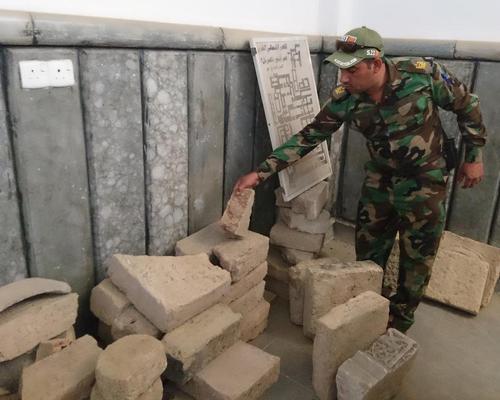25 Jul 2017
Unesco welcomes liberation of Mosul Museum and plans to safeguard site
BY Tom Anstey

Unesco’s director general, Irina Bokova, has welcomed the liberation of Iraq’s Mosul Museum, after Iraqi forces regained control of the city from ISIS following a nine-month military operation.
The museum made headlines in February 2015 when images of its collections being destroyed with sledgehammers by ISIS militants were widely shared by the world’s media.
Since its emergence, IS has had a track record for destruction of Iraq’s cultural history, with the group deliberately destroying heritage sites up to 1,800 years old on its rampage across the region.
The regaining of not only the city, but the museum itself, is seen by Unesco as a landmark moment in the battle for the region’s heritage.
"The liberation of the Mosul Museum by the Iraqi armed forces is a turning point for peace building, for the recovery of the Iraqi people and the protection of humanity’s cultural heritage,” said Bokova.
"The museum suffered severe degradations and the entire world witnessed the images of the destruction of its collections in 2015. The emotion provoked at the time must now catalyse into concrete support from the entire international community.”
Unesco will soon go on site, with the organisation working alongside the Iraqi government and its heritage partners to further safeguard the museum’s collection.
“This is a key resource for cohesion, resilience and peace in Iraq,” said Bokova. “Unesco recently identified priorities for action on protecting heritage in secure areas of Iraq and the liberation of the museum is a call to accelerate this effort.”
Attacks by ISIS on cultural heritage sites in Iraq and Syria have galvanised efforts by the UN to do more. In 2015, IS militants focused sustained attacks on Iraq’s archaeological sites, museums and religious buildings, often with the aim of selling the artefacts to fund the group’s activities.
In March, The United Nations Security Council passed a resolution designed to deter wilful destruction and looting of cultural heritage sites – potentially making such activities punishable as war crimes.
The resolution stated that unlawful attacks against cultural, educational or religious sites or historic monuments could be classes under international law as a war crime and those who carry out such attacks may be tried accordingly.
Close Window